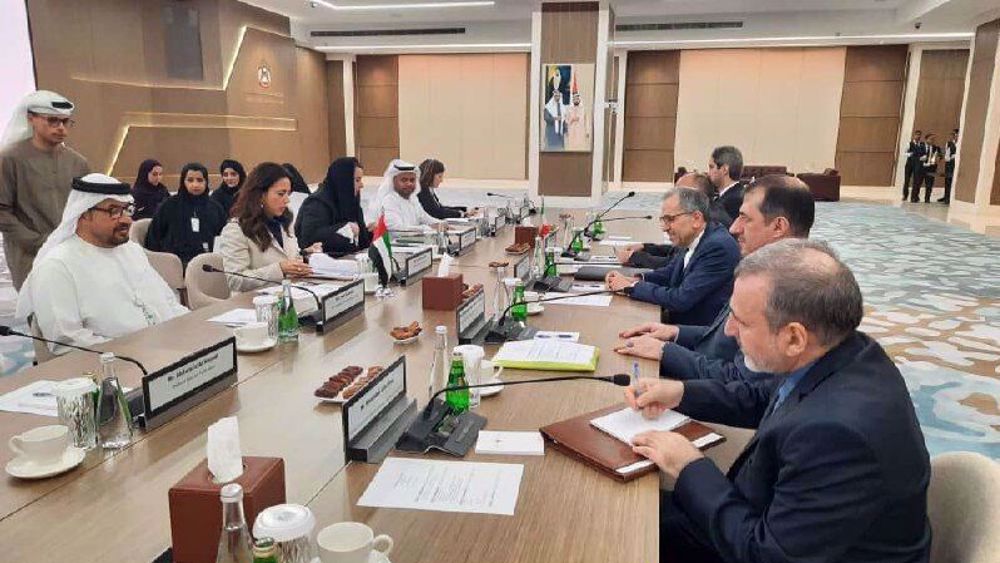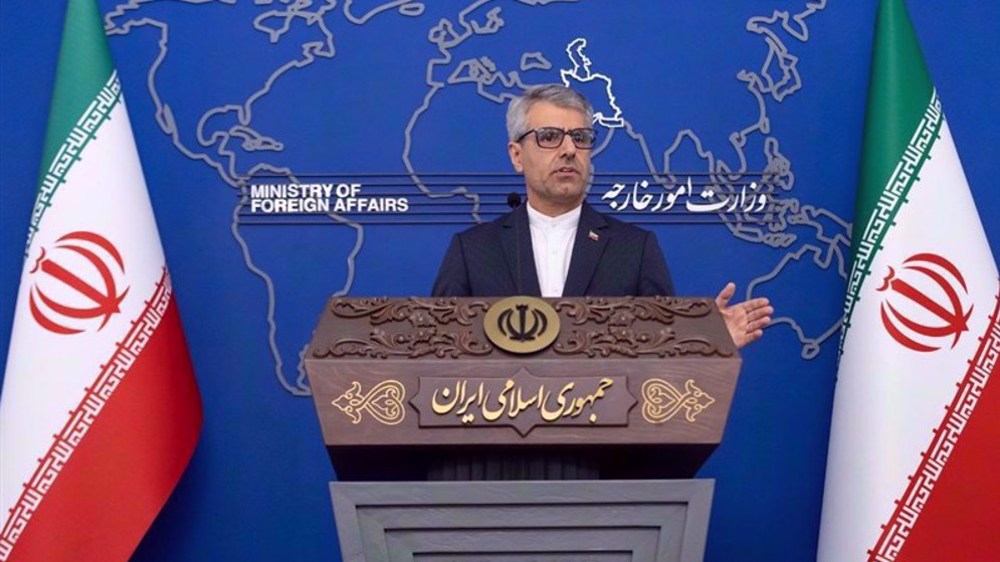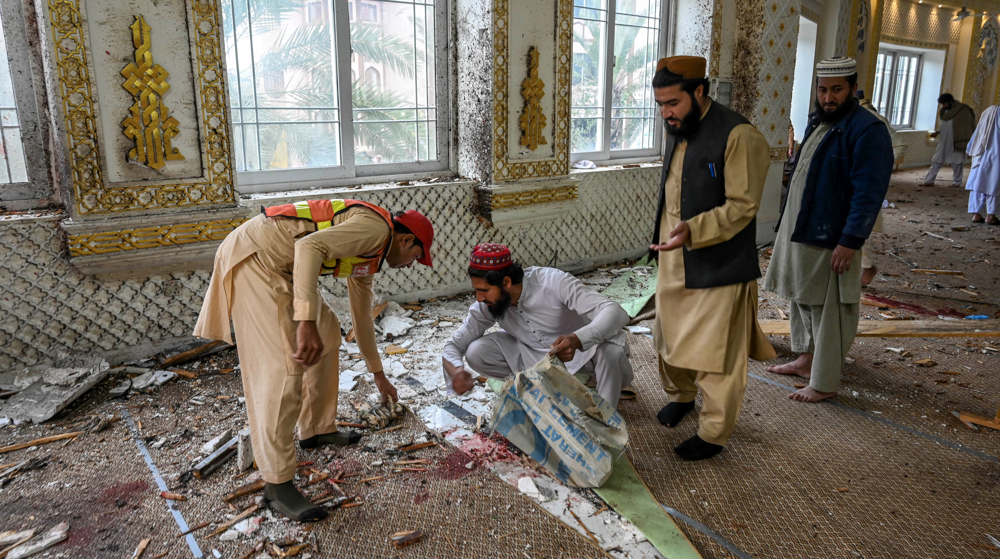US on ‘collision course’ with international community over JCPOA: Zarif
Iranian Foreign Minister Mohammad Javad Zarif says Iran's stance that its 2015 nuclear agreement with world powers is non-negotiable does not put it on a “collision course” with the United States.
The senior Iranian diplomat made the comments in a late September interview with the American Newsweek magazine, the transcript of which was published on Friday.
In response to a question whether Iran's insistence that the deal is not open to renegotiating would put it on a "collision course" with the US, Zarif said, "We’re not putting ourselves on a collision course with anybody... And I believe they are putting themselves on a collision course with the international community.”
Iran and the five permanent members of the United Nations Security Council – the United States, France, Britain, Russia and China – plus Germany signed the nuclear agreement, known as the Joint Comprehensive Plan of Action (JCPOA), on July 14, 2015, and started implementing it on January 16, 2016.
Under the JCPOA, Iran undertook to put limitations on its nuclear program in exchange for the removal of nuclear-related sanctions imposed against Tehran.
Zarif’s remarks come as US President Donald Trump has repeatedly expressed his strong opposition to the accord and has desperately sought a pretext to scrap or weaken it and get rid of the limits the deal imposes on the US ability to pursue more hostile policies against Iran.
Trump faces an October 15 deadline for certifying that Iran is complying with the accord's terms. He has twice endorsed Tehran's compliance but on Thursday he claimed that Iran had not "lived up to the spirit of the agreement."
Such certification is needed by US law every 90 days in order for Congress to continue to withhold nuclear-related sanctions against Iran.
Trump’s argument that Iran is not complying with the deal would translate as US withdrawal from the JCPOA.
Elsewhere in his remarks, the Iranian foreign minister said that it was impossible to renegotiate the JCPOA, saying, “Every aspect of the deal had been fully and repeatedly renegotiated before we reached an agreement. Everybody else who participated in... [it] knows that if we reopen the deal to negotiation, we would be reopening Pandora’s box, which would be impossible to close again.”
Zarif also lambasted the Trump administration for trying “very explicitly” to prevent Iran from “benefiting” from the nuclear agreement by creating a “tense atmosphere.”
Should Washington walk out of the deal, Iran would pursue “options within international law that are available in the agreement,” the Iranian foreign minister said.
Zarif further rejected allegations that Tehran was violating the spirit of the nuclear accord by test-firing ballistic missiles, arguing that the missiles are all conventional and defensive in nature and Iran keeps testing them to attain the highest precision, which is not a necessary feature for nuclear-tipped missiles.
“Iran focuses on improving the precision because we want to use these missiles as a means of carrying conventional warheads. We did not agree to anything limiting our defense capabilities for [the] very obvious reason that the United States is sending a lot of weapons to our region,” Zarif added.
The US stance on the JCPOA comes as the International Atomic Energy Agency (IAEA) has repeatedly verified Iran’s adherence to the terms of the nuclear agreement since January last year.
All other parties to the deal, along with the entire international community, have also thrown their weight behind the accord and verified Iran's full commitment to its side of the bargain.

Iran ready to strengthen ties with UAE based on ‘mutual interests’: Deputy FM

Iran remains steadfast in its ‘principled positions,’ says Foreign Ministry

Iran condemns deadly bombing in Pakistan, stresses regional unity to fight terror
Zelensky should apologize for ‘fiasco’ with Trump: US state secretary
Houthi: Yemen ready to attack Israel if Gaza truce breaks down
VIDEO | Lost classrooms, lost childhoods: Jenin’s children struggle for education
VIDEO | Palestinians ramain steadfast despite Israel’s onslaught
VIDEO | Press TV's news headlines
Iran ready to strengthen ties with UAE based on ‘mutual interests’: Deputy FM
VIDEO | A slap in the face of imperialism
Iran remains steadfast in its ‘principled positions,’ says Foreign Ministry













 This makes it easy to access the Press TV website
This makes it easy to access the Press TV website